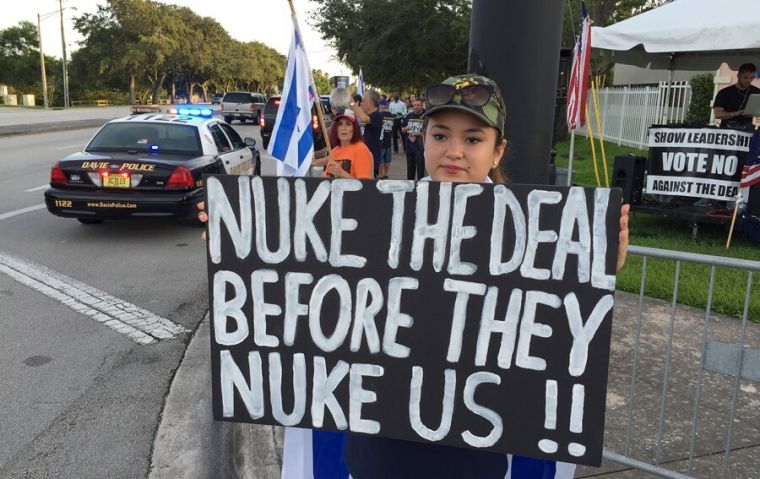Obama triumphs as he secures more than 34 votes in Senate to keep Iran nuclear deal

Three more Democratic senators joined the ranks of those in favour of the Iran nuclear deal on Thursday, bringing to 37 the number of senators backing President Barack Obama, three more than the 34 votes needed to guarantee that Congress cannot override an Obama veto of an expected Republican resolution of disapproval against the agreement.
The latest lawmakers to side with Obama are Senators Cory Booker, Mark Warner and Heidi Heitkamp.
"My decision is about seeking diplomacy rather than conflict," Heitkamp said in a statement.
Obama already guaranteed victory for his foreign policy initiative on Wednesday when Maryland's Barbara Mikulski became the 34th senator to back the deal with Iran.
Obama and his key allies are now trying to gather the 41 votes needed to block a disapproval resolution in the Senate. If they succeed, there will be no need for Obama to use his veto power.
Lawmakers must vote on a resolution by Sept. 17.
Seven Senate Democrats have not made up their mind on the Iran deal: Michael Bennet of Colorado, Richard Blumenthal of Connecticut, Maria Cantwell of Washington, Ben Cardin of Maryland, Joe Manchin of West Virginia, Gary Peters of Michigan and Ron Wyden of Oregon.
Although they vowed to support the nuclear deal, Booker, Heitkamp and Warner each issued a statement stressing reservations about Iran.
"Let's be clear, Iran is a sponsor of terrorism and an abuser of human rights. This deal doesn't change that," said Heitkamp, who represents Republican-leaning North Dakota.
"In no way have we taken military options off the table," she said.
Booker and Warner echoed their colleague's view.
"While I choose to support the deal, I am not satisfied with it as a final measure and will support efforts to shore up its weaker points," Virginia's Warner said in a statement.
Booker—who represents New Jersey, which has a large Jewish population—called the deal "the better of two flawed options."
"I will vote in support of the deal. But the United States must recognize that to make this deal work, we must be more vigilant than ever in fighting Iranian aggression," he said.
On Wednesday, Mikulski became the 34th senator to back the deal, saying it is the best way to prevent Iran's nuclear ambitions.
"No deal is perfect, especially one negotiated with the Iranian regime. I have concluded that this Joint Comprehensive Plan of Action is the best option available to block Iran from having a nuclear bomb," Mikulski said, according to Reuters. "For these reasons, I will vote in favour of this deal."
The US State Department said the US will impose further sanctions against Iran if it changes its behavior about the deal.
"We've been very clear about what this agreement is about. It's about stopping Iran from getting a nuclear weapon," State Department deputy spokesman Mark Toner said.
Opponents of the deal, including retired Gen. Jerry Boykin, warned of the effects of the deal.
"This is, in fact, a pathway to Iran having a nuclear weapon," Boykin, who now serves as executive vice president of the Family Research Council, said, according to CBN.
Boykin and nearly 200 other retired US generals and admirals sent a letter to Congress and urged it to oppose the deal.
"There's going to be a large amount of money—$150 billion (and) I've heard estimates that over a five-year period, that run as much as $700 billion, that is going to go into the coffers of a very rogue Islamic regime who is the biggest sponsor of terrorism," Boykin said.
US still 'Great Satan' — Iran
Meanwhile, the Iranian Revolutionary Guard Corps, a branch of the Iran military that aims to protect Islam in the country, said, "America is still the Great Satan."
"This nuclear deal will under no circumstances alter our country's foreign policy," said Ayatollah Mohammad Yazdi, head of the Assembly of Experts, the body that elects Iran's supreme leader. "The Islamic Republic of Iran considers the US its number one enemy."











